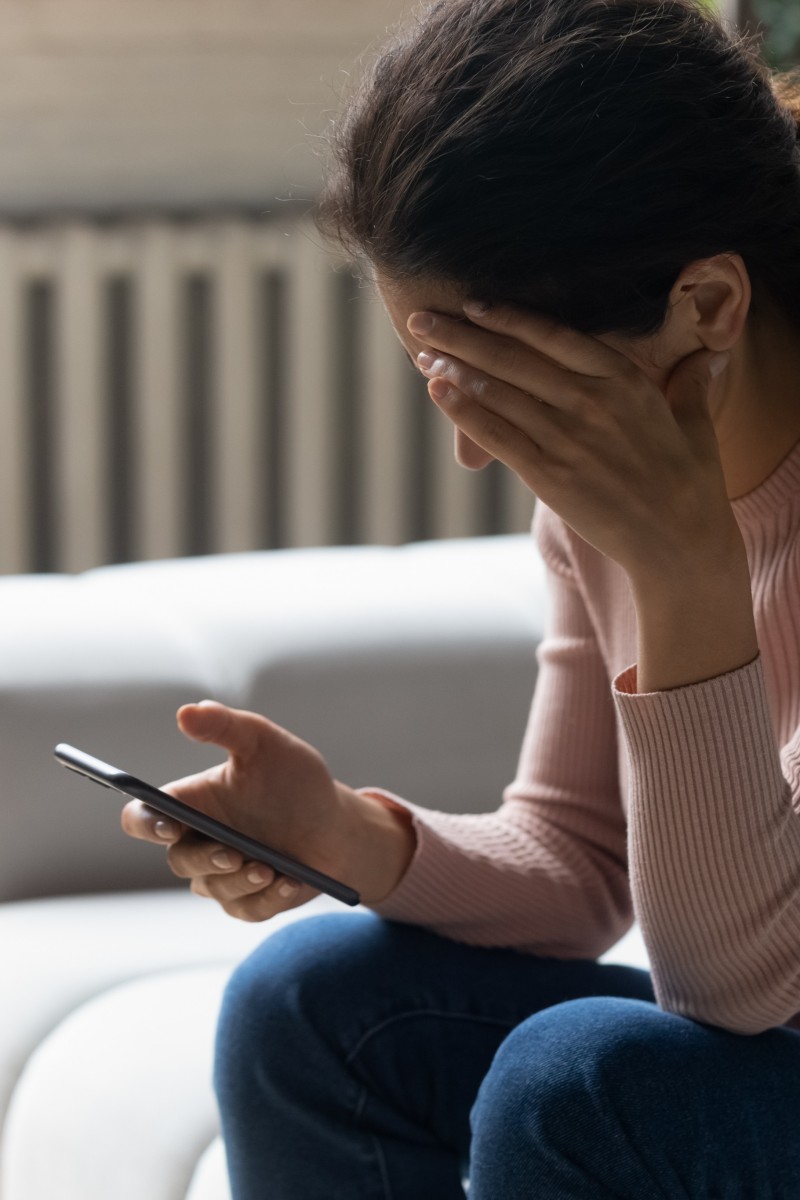
Your Voice: Self-regulation, academic stress, fake degrees, mental health (short letters)
Students discuss the impact of phone restrictions, anxiety at school, falsified credentials, and the inadequacies of mental healthcare.
 Strict phone limits may hinder children’s development and autonomy. Photo: Shutterstock
Strict phone limits may hinder children’s development and autonomy. Photo: ShutterstockHave something to say? Send us a letter using this Google form.
Fostering self-regulation
Grace Woo, St Paul’s Secondary School
While limiting phone usage might help prevent overuse, it could also hinder children’s development.
Imposing strict limits on phone usage can lead to resentment and rebellion. Research indicates that rigid rules often make children more defiant. This is because such limits feel like a threat to their freedom, increasing their desire to rebel. Setting phone usage limits can undermine children’s autonomy. Over-reliance on parental limits prevents them from learning self-regulation.
Children comply instead of managing their phone usage because they have to, not because they want to. This temporary control does not foster responsibility, and children may feel anxious when their parents are not around to enforce rules.
Restricting phone use may block access to beneficial apps. While limits can reduce exposure to harmful content, they also prevent children from using educational and social tools.
Phones offer valuable learning resources and opportunities for social engagement. Excessive restrictions may discourage children from exploring these benefits, leaving them disengaged from learning or disconnected from peers.
Your Voice: Mental health woes and learning with AI
Overcoming academic stress
Angel Tsang, Tak Nga Secondary School
Recently, I have been thinking about a common problem affecting many Hong Kong students: academic stress. This issue has also affected me, so I understand how it hurts our daily lives.
When I was a Form One student, I couldn’t adapt to secondary school life at first. I had too much homework and too many quizzes, while in primary school, we didn’t have much homework and even didn’t have quizzes.
This made me feel anxious and stressed. I worried that my academic results would suffer and my parents would be disappointed in me.
Fortunately, I shared my worries with a friend, and she gave me some advice. I followed her suggestions and tried to think more positively. Finally, I achieved excellent academic results.
My experience helped me find some practical ways to cope with stress. First, we should chat with our family, friends or teachers when we feel too stressed or anxious. It is also essential for us to relax when we are stressed by listening to music or trying to sleep a bit. Moreover, we can exercise to release dopamine, making us feel happier. My tips can help others solve this issue.
Crack down on fake degrees
Bonnie Yip Lam, Ma On Shan Tsung Tsin Secondary School
The use of fake academic credentials to gain admission to prestigious universities is a serious issue that undermines the entire system’s credibility.
It is encouraging to see the Hong Kong government taking decisive action to address the problem.
By working with mainland Chinese authorities to tackle the issue, they are delivering a strong message that such unethical practices will not be tolerated.
The plan to launch a promotional campaign to enhance Hong Kong’s reputation as an educational hub is also a positive step that can help attract genuine and qualified students from around the world. While the authorities’ efforts are commendable, the problem of forged qualifications is likely deeply rooted and may require a multifaceted approach.
Comprehensive investigations, stringent verification processes, and severe consequences for those found guilty are essential to deter such fraudulent practices.
Additionally, greater collaboration with educational institutions and increased awareness among students and parents can help strengthen the overall system.
Hong Kong fights fake qualifications in university admissions
Mental health challenges
Winnie Kwan Hiu-ching, Tsuen Wan Government Secondary School
Many young people in Hong Kong are struggling with emotional problems, often due to academic pressure and concerns about their appearance.
Yet, the psychiatric services for students are inadequate. I know there are some mental health support systems such as the “Three Tier school-based emergency mechanism” and the 4R Mental Health Charter.
However, I don’t think they are very effective since I haven’t seen any activities or services that help students relieve stress. Furthermore, many students who are suffering from mental distress refuse counselling, which is another big problem that I don’t see the systems addressing effectively. The mental health systems should be improved so that they are more practical. Also, schools and parents should be more proactive in understanding what students are going through.
Students should relieve their stress by engaging in their hobbies. However, most of their problems cannot be solved only by relaxing. One day, they should be open to discussing their problems so that we can address them at their root. I hope the government and schools pay more attention to mental health problems.
